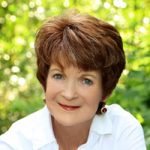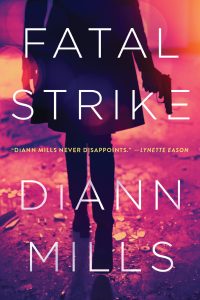by DiAnn Mills, @diannmills
Writing and research go hand in hand. Every topic in our novel needs an element of research. If the manuscript isn’t accurate, the reader will recognize the flaw and toss our work aside. If writers are spot-on, they will be rewarded with good reviews and more readers. Sort of a no-brainer for us writers.
How do we conduct the process effectively and efficiently?
Focus: List in chronological order what research is needed for the story. Keep in mind plot, culture, dialogue, and characters.
Develop: What specialty people need to be contacted to ensure reliable information.
Map: Where does the writer need to visit for experience and sensory perception?
The following questions and suggestions will help the writer focus, develop, and map out a strategic plan.
- Visit the area’s chamber of commerce. Talk to those in the office. Look for brochures about the surrounding area and maps.
- Conduct an Internet search of the area. Some apps will help you with this: Google Maps, Google Earth, Weather Bug, or travel sites that can be found via mobile apps or websites.
- Take or download more pictures than you’ll ever use.
- Interview people living in the area. For a historical setting, this also means reading diaries and journals. How has history affected the community?
- Visit the local library, a wealth of information. View newspaper archives.
- Listen to how local people talk. Do they use a distinct vocabulary? With permission record conversations.
- Record ambient sounds of your story setting.
- Note any smells.
- What are the community’s values and expectations for life and each other?
- What is their diet? How much of their food supply is local?
- What are the local churches?
- Are there museums?
- How is the area governed?
- What are the local hotels? Restaurants? What’s featured on the menus? Any daily specials?
- What are the sources of entertainment?
- How do the residents celebrate their holidays?
- Does the community have special festivals?
- How does the area experience the seasons, and what are average temperatures?
- What are the medical concerns? What kind of medical care is available?
- What kinds of homes do they live? Is there a distinct architecture?
- Where do they shop?
- How do the people dress?
- Is Wi-Fi readily available?
- Are there dead spots with no cell phone coverage?
- Do the arts play a vital role in the community?
- How do people view education, sports teams, and favorite colleges?
- How do people earn a living?
- Where do they attend college or trade schools?
- Does the community support high school sports?
- If the area is near a national or state park, look for research material in
- the visitors’ section.
- Discover the wildlife and birds of the region.
- Look for documentaries on the area.
When a writer is cognizant of what is needed to make a story zip with authenticity, readers clamor for more.
How do you conduct writing research?
There’s a killer on the loose in Galveston, targeting law enforcement officials and using a fatal injection of snake venom to take them down. Authorities have reasons to believe the Veneno gang is behind the hits, and FBI Agents Leah Riesel and Jon Colbert team up to track down those responsible. Their best lead is an eyewitness who identifies a young man dumping the third body on a church doorstep. But their suspect has gone into hiding, and those closest to him are reluctant to reveal anything that might help investigators find him. As Leah and Jon check connections among the victims and dig deeper into motives, they discover appearances may be deceiving. Someone is desperate to keep their secrets hidden, and Leah and Jon must face their greatest fears in order to stop the next fatal strike.

DiAnn Mills is a bestselling author who believes her readers should expect an adventure. She is a storyteller and creates action-packed, suspense-filled novels to thrill readers. Her titles have appeared on the CBA and ECPA bestseller lists; won two Christy Awards; and been finalists for the RITA, Daphne Du Maurier, Inspirational Readers’ Choice, and Carol award contests.
DiAnn is a founding board member of the American Christian Fiction Writers, a member of Advanced Writers and Speakers Association, Mystery Writers of America, Sisters in Crime, and International Thriller Writers. She is the director of the Blue Ridge Mountain Christian Writers Conference, Mountainside Marketing Retreat, and Mountainside Novelist Retreat with social media specialist Edie Melson where she continues her passion of helping other writers be successful. She speaks to various groups and teaches writing workshops around the country.
Connect with DiAnn here: www.diannmills.com



Comments 1
DiAnn, you’re so very thorough with your research, you’ve set the bar very high for other writers. Excellent outline.